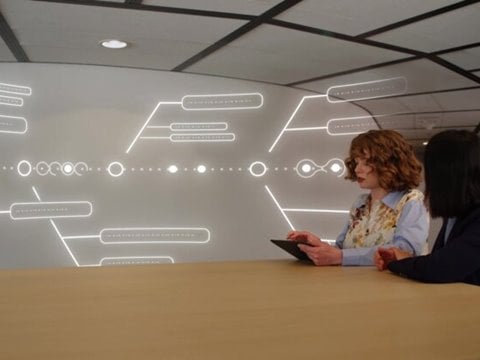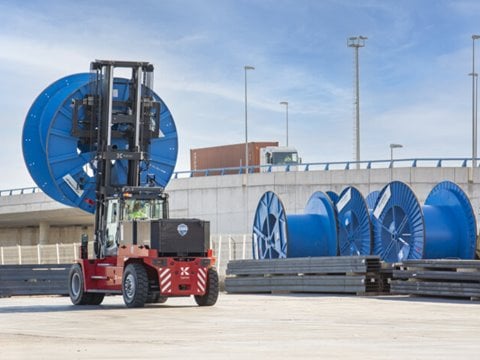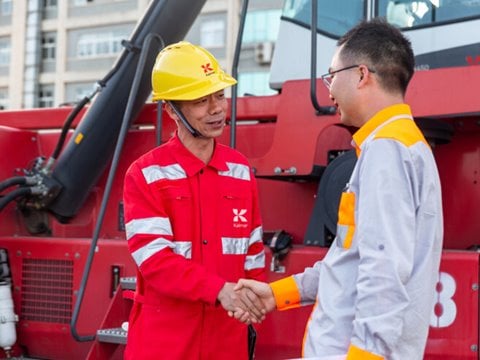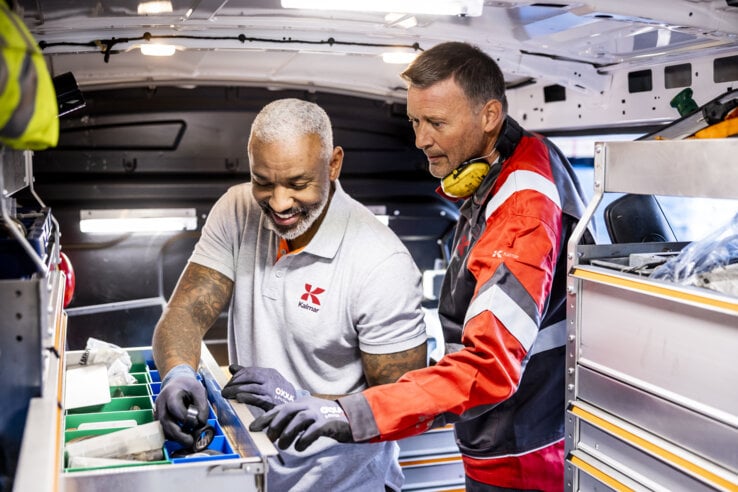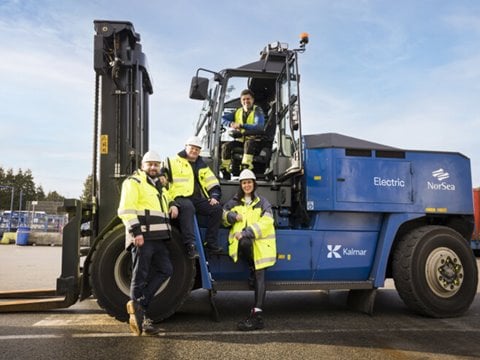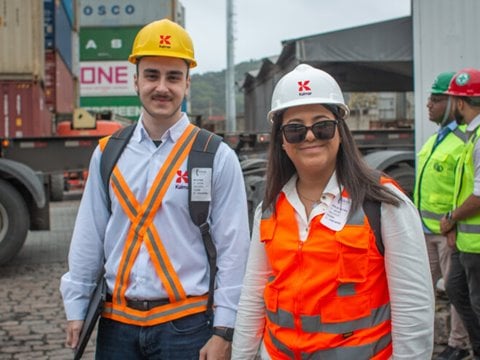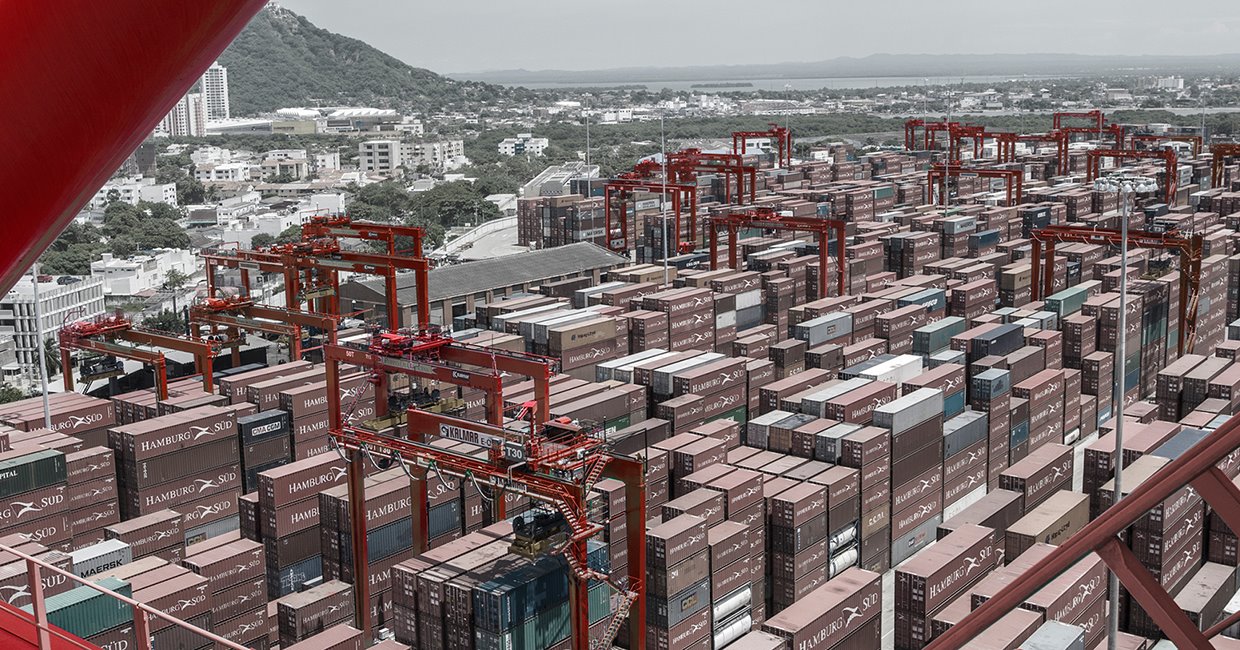
‘Nature first’ is second nature by 2060
With a background in geography, communications and political history, Karoliina Loikkanen, Director, EHS at Cargotec, can see the challenges of building a more sustainable future for shipping from many different perspectives. Her vision of the future is one in which environmental sustainability is an unremarkable part of everyday life, as well as an inseparable part of normal shipping and cargo handling operations.
Moving forward: A sustainable lifestyle becomes status quo
A few decades ago it used to be special that you had an unleaded car, or that your fridge was ‘CFC free’. In the same way that these more environmentally friendly ways of operating have become so normal as to be unremarkable, says Karoliina, the world of shipping in 2060 will be environmentally sustainable. “In 2060 we can’t separate sustainability from the normal way of working,” she explains, “People no longer think ‘it’s sustainable this, or sustainable that’ because environmental sustainability is totally integrated into all operations.”
Her vision is of a future where environmentally harmful emissions are a thing of the past, and where shipping is recognised as the most reliable, cheap and efficient form of global cargo transportation. Local forms of water-based transportation will also evolve. Short sea shipping in particular; far more environmentally sustainable than short-distance air or road transportation, will be one of the dominant forms of global and local transport by 2060. Short sea shipping is already on the rise in China and a topic of political discussion, notes Karoliina, and alongside river transportation, it’s one of the areas of the industry that really deserves to grow.
Better living through automation
More intelligent systems, which will enable ships to better adapt and utilise surrounding conditions, such as changing wind and currents, are integral to minimising environmental impact. Advances in artificial intelligence and automated systems will also mean that cargo can be tracked and managed more accurately and efficiently, with portside traffic jams “a thing of the past,” according to Karoliina.
She also sees more automated systems, in combination with the offshore relocation of ports, as having socio-economic benefits for portside communities. “Large industrial ports can restrict and cramp sustainable residential growth,” Karoliina points out “but by 2060, the relocation of ports to offshore zones will reduce land-bound traffic. This will allow for continuous spatial planning and more controlled urbanisation, ultimately increasing the possibilities for developing more socio-economically sustainable residential zones.”
On top of this, she predicts that the increasing accessibility of produce and products from all over the world will make service providers “the forerunners of economic growth, something which will benefit everyone, especially at a local level. More efficient local material recycling methods would be available to support local reproduction, while global material and recycling material flows would present new possibilities for refining on a global scale.
This vision – the complete normalisation of environmental sustainability – is in contrast with a current political climate in which environmental issues are amongst the hottest global topics. However, Karoliina is quick to point out that while the politicians argue, the industry is already treating the issue as a foregone conclusion.
“The industry, the ship owners and operators, everyone knows – of course we have to be environmentally sustainable, of course we have to develop and improve our operations to stay competitive,” says Karoliina, “because no matter the politics, we all know that at some stage the regulations will come” she continues. “Business leaders have already started integrating environmental sustainability into shipping operations, simply because that is the only way.”
Of course there are many separate concrete technological challenges and the industry still has some hard work ahead, but Karoliina is very positive. “Some companies have already taken huge steps towards developing more environmentally friendly practices. Ultimately, these will have huge socio-economic impacts” she says. “The most developed technology in the future will be born through different industries, competencies and companies coming together to find solutions which are adaptable to multiple industries”.
She hopes that the Port 2060 project might be the beginning of just such a fruitful collaboration.
Related articles
Further reading
Subscribe and receive updates in your email
Subscribe